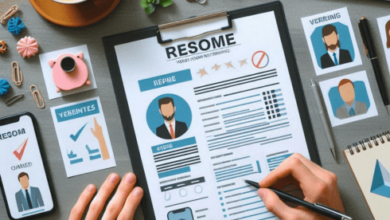The History of Education – Milestones and Movements

Education has played a pivotal role in human development and progress throughout history. This article explores the rich and diverse history of education, highlighting key milestones, influential movements, and the evolution of educational practices from ancient civilizations to modern times.
Ancient Civilizations and the Origins of Education
Education has its roots in ancient civilizations where formal systems of teaching and learning began to take shape. Some of the earliest examples include:
- Mesopotamia:
The ancient Mesopotamians, particularly the Sumerians, established one of the earliest known systems of writing and education. Clay tablets with cuneiform script were used to teach mathematics, history, and literature.
- Egypt:
Ancient Egypt developed a formal system of education to train scribes and administrators. Education was linked to religious and moral instruction, as exemplified by the “Instructions of Ptahhotep.”
- Greece:
In ancient Greece, education was highly valued, with notable philosophers like Plato and Aristotle contributing to educational theory. The Gymnasium and Academy were renowned centers of learning.
- Rome:
Roman education emphasized practical skills, including reading, writing, and oratory. Education was divided into three stages: primary, secondary, and higher education.
- India and China:
Ancient India and China had well-established educational systems. Indian scholars developed the system of Gurukul, where students lived with their teachers, while the Chinese Confucian tradition emphasized moral and ethical education.
The Middle Ages and the Rise of Universities
The Middle Ages saw the rise of universities as centers of higher education and scholarship. Key developments during this period included:
- Monastic Schools:
Monasteries played a crucial role in preserving knowledge and providing education. Monastic schools were often the only centers of learning during this time.
- Cathedral Schools:
Emerging in the 9th century, cathedral schools provided education focused on theology, grammar, and rhetoric.
- Universities:
The 12th and 13th centuries saw the founding of universities, starting with the University of Bologna in Italy. These institutions became hubs for higher learning and laid the foundation for modern academia.
The Renaissance and the Age of Enlightenment
The Renaissance period marked a revival of interest in the arts, sciences, and education. Key developments included:
- Humanism:
Humanism emphasized the study of classical texts and the development of well-rounded individuals with a broad education. Humanist educators like Erasmus and Petrarch had a significant impact.
- The Age of Enlightenment:
The Enlightenment era emphasized reason, science, and education. Thinkers like John Locke, Jean-Jacques Rousseau, and Immanuel Kant contributed to educational philosophy.
The Modern Education System
The 19th and 20th centuries saw the development of modern educational systems as societies recognized the need for universal education. Key milestones and movements include:
- The Industrial Revolution:
The Industrial Revolution prompted the need for a more educated and skilled workforce, leading to the expansion of public education.
- The Common School Movement:
In the United States, the common school movement advocated for publicly funded and accessible education for all, regardless of social or economic background.
- Compulsory Education Laws:
Many countries introduced laws requiring children to attend school, making education compulsory and accessible to all.
- Progressive Education:
Educational reformers like John Dewey promoted the idea of progressive education, emphasizing experiential learning, critical thinking, and active student engagement.
- The Establishment of Education Systems:
Countries worldwide established comprehensive education systems, including primary, secondary, and higher education, as well as vocational and technical education.
The 21st Century and Education Challenges
In the 21st century, education continues to evolve and adapt to the changing needs of society. Some of the prominent developments and challenges include:
- Technology in Education:
The integration of technology has transformed teaching and learning, providing new tools and approaches for educators and students.
- Globalization:
Education has become increasingly global, with international collaborations, exchange programs, and a focus on preparing students for a globalized world.
- Inclusive Education:
There is a growing emphasis on inclusive education, ensuring that students of all abilities have access to quality education in regular classroom settings.
- Lifelong Learning:
The concept of lifelong learning has gained prominence, with individuals pursuing education and skills development throughout their lives.
- Education Challenges:
Challenges such as educational inequality, access to quality education, and the need for education reform continue to be significant issues.
The Future of Education
The future of education is likely to be shaped by various factors, including technological advancements, shifts in the job market, and changing societal needs. Potential developments in education may include:
- Personalized Learning:
Technology may enable more personalized and adaptive learning experiences tailored to individual students’ needs and preferences.
- Digital Literacy:
Digital literacy and the ability to navigate the digital world effectively will become increasingly important.
- Lifelong Learning:
Lifelong learning will be essential as individuals adapt to changing job market demands and seek continuous skill development.
- Global Collaboration:
Education may involve more international collaboration and cross-cultural exchange, preparing students for a globally interconnected world.
- Inclusivity and Equity:
The push for inclusive and equitable education will continue to address disparities in access and quality.
Conclusion
The history of education is a testament to humanity’s continuous quest for knowledge and development. From ancient civilizations to modern times, education has evolved, adapting to the changing needs of society. As we look to the future, the challenge remains to provide quality, accessible, and inclusive education that equips individuals with the skills and knowledge needed to thrive in an ever-changing world. Education will continue to be a cornerstone of progress, innovation, and human potential.




